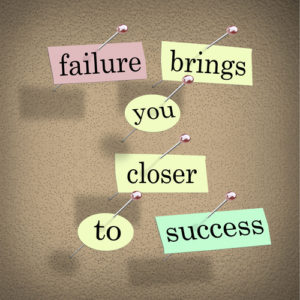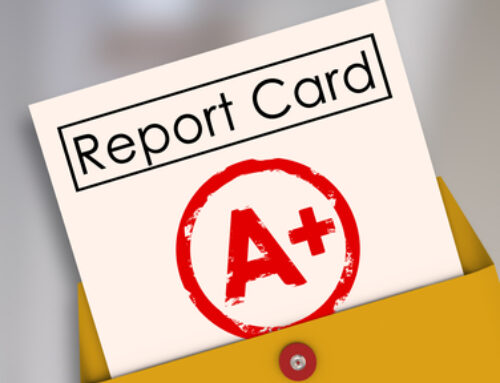 In a recent blog post, I discussed why getting straight A’s in college is not necessarily a recipe for a successful career and life. Citing a New York Times article, I offered many reasons for this, one of which is that students who never get less than an A don’t experience the benefits of failure. Yes, you read that right: the benefits. Failing helps people build resilience, which can assist them in overcoming obstacles and finding success.
In a recent blog post, I discussed why getting straight A’s in college is not necessarily a recipe for a successful career and life. Citing a New York Times article, I offered many reasons for this, one of which is that students who never get less than an A don’t experience the benefits of failure. Yes, you read that right: the benefits. Failing helps people build resilience, which can assist them in overcoming obstacles and finding success.
Another New York Times article took this idea a step further by encouraging people to create a failure resume. No, this is not something you’d include with your college applications or give to a potential employer. Rather, a failure resume is intended to be solely for one’s own use.
What is the purpose of a such a resume? The author of the NYT article argues that we learn more from our failures than we do from our successes. If you say you’ve never failed, you’re not thinking hard enough. Even if you’ve never gotten an F on a test, lost a game, or completely blanked during a piano recital, we all experience setbacks now and then. When this happens, most of us seek only to overcome the difficulty we’re facing and then forget about the struggle. But by doing that, we miss the opportunity to learn from our mistakes.
A failure resume gives you the space to think about what went wrong, so that hopefully you can take a different approach the next time you encounter a similar situation. Additionally, and perhaps more importantly, it allows you to identify what you learned from the experience, and these lessons can be extremely valuable.
Additionally, a failure resume might actually come in handy when it comes time to apply to college. Common college interview questions include, “Tell me about a challenge you had to overcome,” and “Describe a time when you failed. What did you learn?”
I’ve also seen college essay prompts that ask such questions. The Common Application, which is accepted by over 800 colleges, has seven essay prompts that students can choose from. One prompt reads, “The lessons we take from obstacles we encounter can be fundamental to later success. Recount a time when you faced a challenge, setback, or failure. How did it affect you, and what did you learn from the experience?”
So, think back over your time in high school and write down your failures. Continue to add to the list as you encounter challenges in the future. In doing this exercise, remember to be kind to yourself; the point of a failure resume isn’t to give you reasons for self-criticism, it’s to help you grow.





